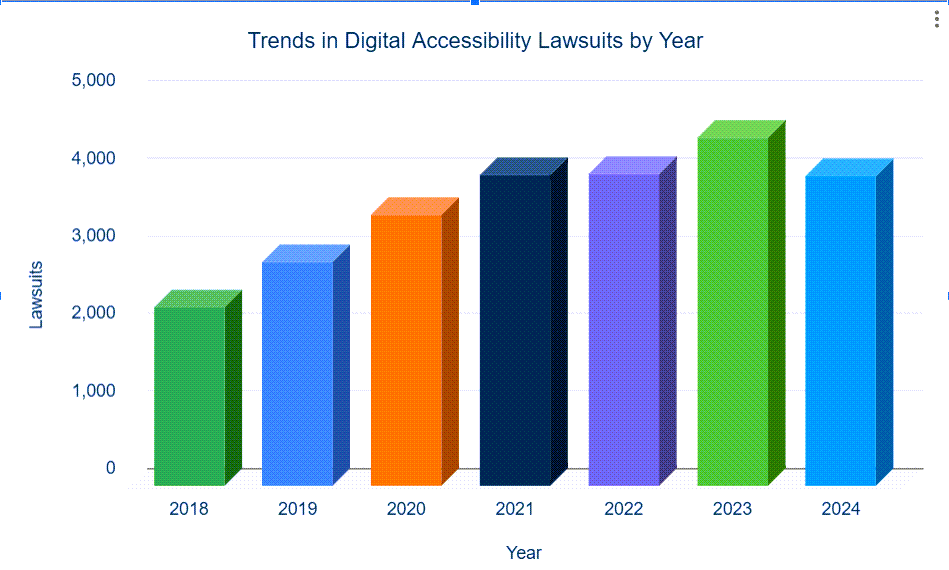Digital Accessibility Lawsuits
Digital accessibility lawsuits have been increasing year over year. The best strategy to protect your organization is to be proactive.

Cases on the Rise
Digital accessibility lawsuits are an increasing concern for many businesses and organizations. Government agencies and organizations that receive government funding are subject to Section 508 of the Rehabilitation Act and to the Americans with Disabilities Act. This means they need to meet WCAG 2.0 guidelines.
Over 4,000 digital accessibility lawsuits were filed every year for the past four years.
Nearly 1,000 companies that had previously faced ADA digital lawsuits were sued in 2024.
More than 1,000 lawsuits were filed in 2024 against companies using widgets or overlays as an accessibility solution for their websites.

Majority of Lawsuits in 3 States
There were over 1600 digital accessibility lawsuits filed in state courts and more than 2400 in federal courts.
New York, California, and Florida accounted for over 90% of website accessibility lawsuits in 2024 (as they have in the past several years) due to their significant state civil rights laws. While the ADA at the federal level does not allow plaintiffs to recover damages beyond compensation for court costs and legal fees, some state laws do allow plaintiffs to recover punitive damages for discrimination caused by an inaccessible website. Some states also enforce discrimination laws against any company whose website is available to residents of their state, regardless of where the company is located.
You can check your state digital accessibility laws in our reference guide here.
Increasingly, people with disabilities are becoming frustrated with companies’ failure to create websites that are accessible. The only way an organization can guarantee it won’t face Section 508, ADA Title II or state digital accessibility lawsuits is to make sure every part of its business- both in the built and digital environments- is accessible to every visitor.

Avoiding Digital Accessibility Lawsuits
The best course of action to avoid the expense and trouble of digital accessibility lawsuits is to be proactive.
- Have a Digital Accessibility Policy and enforce it rigorously
- Ensure employees are trained in accessibility and responsibilities are clearly outlined
- Regularly audit and remediate websites and online documents
- Respond promptly and helpfully to any complaints. Do not delay resolution to any issues that arise.

How can we help?
We’re here to make PDF accessibility easier. Contact us to speak with a PDF accessibility expert.
